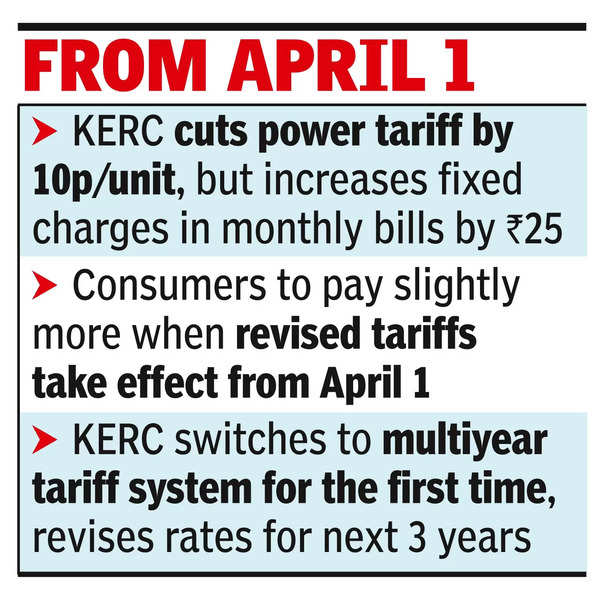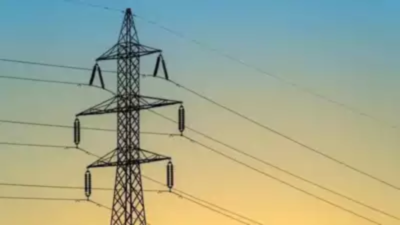Karnataka slashes power tariff by 10 paise/unit, hikes fixed charges by Rs 25 from April 1 | Bengaluru News

BENGALURU: True to the essence of Ugadi, Karnataka Electricity Regulatory Commission (KERC) Thursday handed a bittersweet gift to lakhs of consumers across the state, reducing electricity tariff by 10 paise per unit across categories and increasing fixed charges on monthly bills by Rs 25.
Though a relief at the outset, consumers will, on balance, still pay slightly more when the new tariffs take effect on April 1.

Switching over to the multiyear tariff system for the first time, KERC revised tariffs for the next three years: While energy charges were Rs 5.90 paise per unit during 2024, KERC reduced it to Rs 5.80 for 2025-26 and 2026-27, and further cut it by 5 paise for 2027-28.
Status quo on charges of HT consumers
This tariff slab is applicable to domestic, commercial, industrial, educational institutions and hospitals. The reduction in energy charges will shave off monthly bills by up to Rs 50 for a family of four on moderate consumption, according to energy department sources.
On the flip side, KERC increased fixed charges on monthly electricity bills from Rs 120 in 2024 to Rs 145 per kW now.
KERC has cut electricity tariff for commercial firms under HT-2(a) categories by 30 paise per kilowatt from Rs 6.90 kwh in 2024 to 6.60 per kwh in 2025.
KERC has maintained status quo on electricity and fixed charges for HT consumers, including water supply boards and sewage-treatment plants, across Karnataka.
KEY HIGHLIGHTS
- The Karnataka Electricity Regulatory Commission has reduced electricity tariff by 10 paise per unit while increasing fixed charges on monthly bills by Rs 25, leading to an overall increase in costs for consumers.
- The new multiyear tariff system will see electricity charges decrease from Rs 5.90 per unit in 2024 to Rs 5.80 for 2025-26 and 2026-27, followed by a further reduction of 5 paise for 2027-28.
- Fixed charges for monthly electricity bills will rise from Rs 120 in 2024 to Rs 145 per kilowatt, while the commission has kept the charges for high tension consumers unchanged.
















